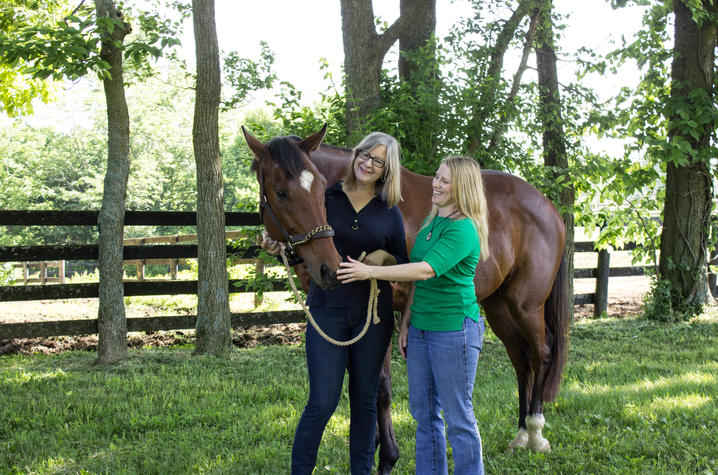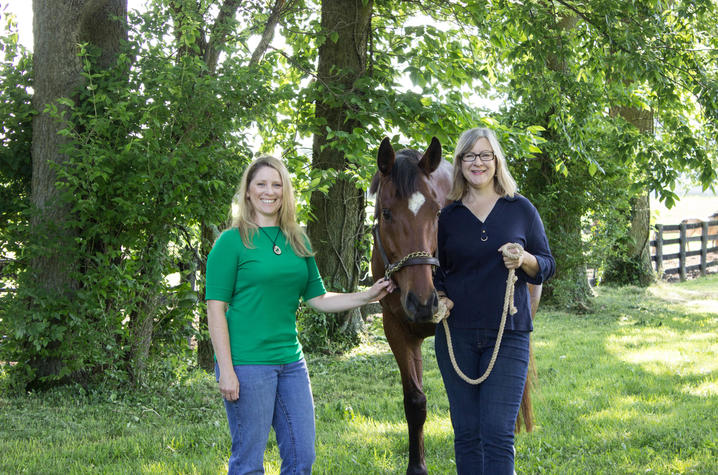UK Faculty Leading a Global Team to Assess Female Equestrian Health
LEXINGTON, Ky. (May 31, 2018) — While a wealth of knowledge exists on treatment, nutrition and health of horses, little research has been done on the health and well-being of equestrians, especially female equestrians. This lack of study on women, who make up 70 to 80 percent of the industry, is what motivated Karin Pekarchik, senior extension associate for distance learning in the University of Kentucky College of Agriculture, Food and Environment, and Kimberly Tumlin, assistant dean for strategic planning and assessment in the UK College of Public Health, to bring women from around the globe together to identify areas where research on female equestrian health and wellness is lacking, identify opportunities for research and collaboration and drive improvement in several areas for women in the industry.
Pekarchik and Tumlin have been involved in the equine industry for a long time, though, like many equestrians, Pekarchik had a break from horses which coincided with her early career in Manhattan, while Tumlin remained involved throughout her life. They each started riding horses at a young age, were members of 4-H and have been involved in horse breeding farms. Their passion for the equine industry and horses, motivated them to move to Lexington to continue learning about and working in the industry.
The Female Equestrian Health and Wellness Community of Practice (CoP) held its first meeting via video-chat May 15, 2018, with participants from places like England, Ireland and Australia.
“I think the CoP is important to bring together scientists, researchers and practitioners from around the globe to share information, ideas, support and initiate research collaborations," said member Lorna Cameron, a teaching fellow at University Centre Sparsholt in the United Kingdom. "It is also important for the dissemination of knowledge as evidence means nothing if it's sat on a dusty shelf somewhere.”
The group was founded, according to Pekarchik, in order to "bring together women who were passionate about a field that is under researched." While Pekarchik’s research was initially inspired by the need for a better, more supportive, equestrian sports bra, she recognized early on that there was a bigger picture. But Pekarchik and Tumlin’s interests go beyond breast health; they want to examine the physical and mental health of athletes including pain and the impact riding has on the body and psycho-social issues.
The location of UK in Lexington, known as the horse capital of the world, provides special access to a large portion of the equestrian industry and horse population.
UK’s campus also offers a unique environment and resources such as the Sports Medicine Research Institute Jockey and Equestrian Initiative. Tumlin and Pekarchik are members of the core team that assists Carl Mattacola, professor and researcher in the UK College of Health Sciences, who conducts studies on concussions among the jockey population and is developing jockey/rider health initiatives. Additionally, they’ve received support from the colleges they each work in; Mike Montross, chair of biosystems and agricultural engineering, and Donna Arnett, dean of the college of public health, have given them opportunities to allocate time and resources to their project.
“The CoP is a global think tank for a group of passionate women who want to make a difference in the equine industry,” Tumlin said.






